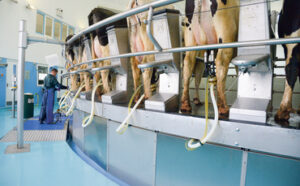
New Delhi: Demand for fast moving consumer goods (FMCG) rose in the first quarter of FY24 as inflation eased, but revenue growth could moderate sequentially as companies lowered the intensity of price hikes, provided extra grammage, and made direct price cuts. Still, falling raw material prices may aid gross margins.
“Slight green shoots are visible in rural demand aided by a softer base, but still, urban shall grow faster. With deflation in key raw materials, gross margins are expected to improve year-on-year for a majority of our coverage stocks,” analysts at Nuvama Institutional Equities said in a 5 June report. However, the broking company pointed to some pressure in margins for dairy companies.
Dabur noted signs of sales improving in both urban and rural India. “One of the key contributing factors to this positive development has been the reduction in inflation. Sequential moderation in inflation has positively impacted consumer spending power and is resulting in gradual improvement in offtakes in the industry,” the company said last week.
Overall consumer demand and sentiments improved during Q1 as rural demand for staples rose, albeit on a low base supported by price cuts and grammage increases, while urban demand remained steady, analysts at Prabhudas Lilladher said in a 6 July report.
Parachute oil maker Marico was less optimistic. Demand trends in the sector remained “stable” during the quarter, although signs of improvement on a sequential basis were not clearly visible, the company said in its update.
“While urban markets were steady, the anticipated pickup in rural demand remained elusive. Moderating headline inflation, hike in MSPs, easing liquidity pressures and forecast of a near-normal monsoon continue to fuel hopes of a gradual recovery in rural demand in the course of the year,” the company said.
Demand trends across discretionary categories like quick service restaurants, apparel, footwear and retail remained weak.
The last two years were also marked with stubbornly high raw material inflation boosting prices of daily essentials. This was especially true for categories such as edible oils, soaps, detergents and biscuits.
However, as commodity prices began easing, companies have been making direct price cuts and offering extra grammages. For instance, palm oil prices fell 39% year-on-year. Price cuts were more pronounced in detergents and edible oil; while dairy companies hiked prices during the quarter. Nuvama expects price cuts in soaps and laundry to help lift volumes in the June quarter.
Financial services firm Jefferies expects FMCG companies under its coverage to report gross margin expansion of 220 basis points year-on-year. Companies are likely to plough back the money into higher ad-spends, it said.
Commodity prices continued to correct and are down significantly compared to a year ago period, said others, aiding volume growth. “Staples companies have increased consumer promotions or offers and took selective price cuts—grammage increases, which will improve demand and reverse consumer downtrading,” analysts at Prabhudas Lilladher said.
Brokerages said that unseasonal rains may have a bearing on demand for beverages, cooling hair oils, ice cream and talcum powder.
Analysts at Kotak Institutional Equities forecast a “strong margin recovery-led profit growth,” for the consumer goods sector with stable volume growth, moderation in pricing and revenue growth and strong EBITDA growth for staples; rural demand remains soft, but the divergence between urban and rural growth would narrow, they said. The company expects staples’ firms to report a year-on-year revenue growth of 9.8% in the June quarter.
Godrej Consumer Products said overall domestic consumer demand remained “steady”. “Our organic business continued to deliver robust performance with double-digit volume growth,” the maker of Cinthol soaps said in its June quarter update.
Download The Mint News App to get Daily Market Updates & Live Business News.
More
Less
Updated: 16 Jul 2023, 11:33 PM IST




